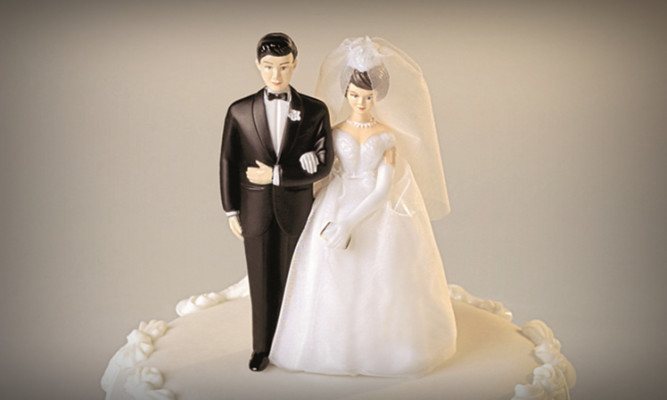The Humanist Society Scotland (HSS) expects to overtake the Church of Scotland this year with the number of marriages it conducts.
The statistic emerged as the crisis posed to the traditional church by falling congregation numbers was highlighted by Perth minister the Rev Scott Burton.
He decided to reveal the scale of the problem only 560 people attend services at the Church of Scotland’s five churches in Perth city centre each week claiming if the decline isn’t reversed the church will become “a thing of the past”.
Plummeting congregation numbers are mirrored in cities, towns and villages across Scotland.
As traditional religion loses its appeal, the secular offering of the Humanist Society appears to be on the rise.
Formally established in Scotland in 1979, in 2005 they were granted authorisation by the Registrar General for Scotland to conduct legal marriages.
“What started initially as a handful of volunteers has, a decade later, transformed into a world-leading service,” said a spokesperson for the society.
“We are the only country within the UK to conduct legal marriages, although our weddings are recognised globally.
“Last year over 3,500 couples were married by HSS registered celebrants, more than all other religious groups with the exclusion of the Church of Scotland.
“According to current trends, we expect to conduct more marriages than the national kirk in 2015, making HSS the most popular provider of non-registry marriages.
“As well as providing non-religious ceremonies, we also have a range of local group meetings, community activities and campaigns.
“In January 2015 our membership reached 10,000 and continues to grow day by day.”
However, George Whyte, acting principal clerk of the General Assembly of the Church of Scotland, put forward the case for people getting married in their churches.
“I don’t wish to discuss statistics but some of the Humanists’ figures may have come from the registrars,” he said.
“Our church remains very willing to talk to anyone about getting married. Our ministers do not charge fees unlike the Humanists and are always looking for people living in the parish who wish to get married.”
“Our marriages are not expensive and we are willing to hold them in the church and beyond we don’t insist on people getting married in church.
“We are flexible and can cope with small and big numbers.
